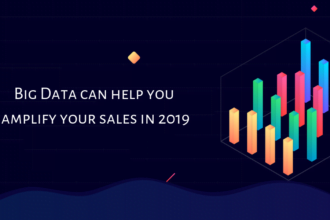 Sherlock Holmes believed in the necessity of data long before the big data hubbub, declaring data-driven decision making as increasingly beneficial. To Holmes, our new obsession with fact-focused business practices (backed by data) is purely elementary — but don’t take our word for it. Take his.
Sherlock Holmes believed in the necessity of data long before the big data hubbub, declaring data-driven decision making as increasingly beneficial. To Holmes, our new obsession with fact-focused business practices (backed by data) is purely elementary — but don’t take our word for it. Take his.
“There is nothing like first-hand evidence.”
 Sherlock Holmes believed in the necessity of data long before the big data hubbub, declaring data-driven decision making as increasingly beneficial. To Holmes, our new obsession with fact-focused business practices (backed by data) is purely elementary — but don’t take our word for it. Take his.
Sherlock Holmes believed in the necessity of data long before the big data hubbub, declaring data-driven decision making as increasingly beneficial. To Holmes, our new obsession with fact-focused business practices (backed by data) is purely elementary — but don’t take our word for it. Take his.
“There is nothing like first-hand evidence.”
Sure, the Internet didn’t exist in Sherlock’s time, but he full and well understood the importance of first-party data — and it’s likely he wouldn’t have been a huge fan of the cookie.
Us either.
Cookies are crumbling at an ever increasing rate, thanks in large part to the good people of the Internet, who have made it clear that cookie tracking tactics aren’t only unappreciated and often unsolicited, but a breach of user privacy.
Instead, first-party data is becoming king, especially when shared, with permission, by the user. The best example of first-party data, and the most useful? Identity data shared via social authorization. When properly implemented on your site, social authentication can pull user brand affinities and influence into a data platform like the Digital Genome, allowing you to collect, secure and take action on your users’ individuality in real-time.
This isn’t Cookie Stalking 101. It’s treating people like people — and that shouldn’t be so revolutionary.
“The world is full of obvious things which nobody by any chance ever observes.”
This concept alone was the driving force behind Hadoop — the idea that with so much data and information flowing, the ability to analyze and draw conclusions from that data is limited. You can’t even connect the obvious dots in our data-overloaded world, much less the more nuanced, which is why you need a DMP, a CRM, a Hadoop, or what have you.
But more to Sherlock’s point, the data doesn’t do the work for you. When using data platforms, it’s up to companies to figure out how best to use their newfound information — and hopefully they use it to better their bottom line, even if the data is counterintuitive to their previous business models.
For instance, with the Digital Genome, a company can connect the dots between the 25% of their audience who access their site via mobile and the 15% within that audience that are avid fans of Mashable. Maybe the company hasn’t done much mobile advertising, but with a majority of their mobile audience also checking out Mashable on a regular basis, it makes sense to find look-a-likes via mobile advertising on that site.
It’s obvious — but will companies do it?
“It is a capital mistake to theorize before one has data. Insensibly one begins to twist facts to suit theories, instead of theories to suit facts.”
Most of us recognize this situation well — we just call it by it’s modern day name: office politics. But, as the economy moves toward one based on data-driven decisions, office politics will need to take a back-seat.
With data, winning and losing business strategies are made abundantly clear. Does that mean that employees need to fear new ideas or testing out the data in different ways? Absolutely not — it just means that we’re reaching the golden age of trial and error, in which every marketing or advertising effort has a success metric you can be sure isn’t from a faulty survey.
“I never guess. It is a shocking habit,—destructive to the logical faculty.”
Guessing at success metrics is indeed a faulty habit — and yet print and billboard ads, or traditional media, have long been and continue to do so. Small surveys and panels do not represent the whole of your audience — and those likely to participate in those surveys or panels represent an even more miniscule percentage of your audience. That said, the findings on ad success from print and billboards are simply educated guesses.
Digital advertising isn’t, which is why Internet ad spend has officially beat out broadcast for the most dollars spent. It’s about the data and increasing conversions.
“‘Data! Data! Data!’ he cried impatiently. ‘I can’t make bricks without clay.'”
His point? You can’t draw solid conclusions without data the same way you can’t build solid bricks without clay. The material you use to build your business is just as or even more essential than your expected outcome. You need the right data, from the right people, on the right platform before you can expect any type of ROI.








